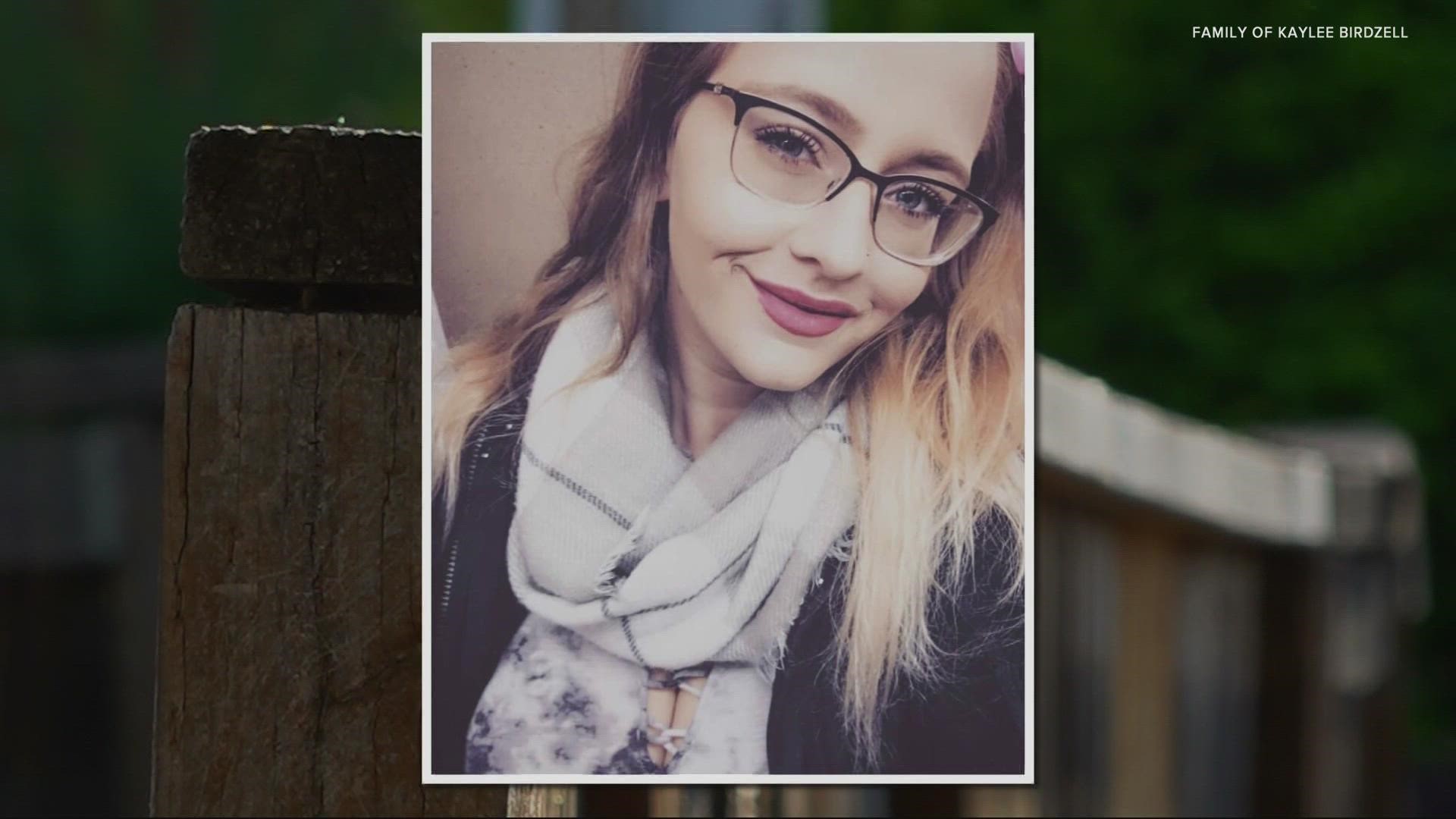BEAVERTON, Ore. — This week, investigators in Washington County uncovered the body of 27-year-old Kaylee Birdzell in a Benton County landfill. Fabian Hernandez, 31, was arrested and charged with her murder. Since the two had been in a relationship, detectives confirmed this to be a domestic violence related murder.
The Family Justice Center (FJC) of Washington County told KGW that the center and its partners are heartbroken to hear of this horrific instance of domestic violence in the county — grieving the loss alongside Birdzell's family, friends, and the rest of the community.
Although FJC has served more than 11,800 people from its opening in 2018 to the beginning of this year, Executive Director Rachel Schutz said it's essential everyone know these resources and services are available 24 hours a day, seven days a week.
"The Family Justice Center is a unique organization because it’s actually a collaboration of 15 different agencies inside of our county, seeking to create a single place for survivors of any type of violence and abuse," Schutz said. "We provide the immediate resources for safety, and then we move along with them in the journey of healing towards finding that hope for the future.
"I hate that it's necessary. I don't want anyone to have to come here. Every person here wants to have done enough to close our doors because we are not needed anymore — that's the goal."
Yet, she said, that's not the current reality. She hopes more people recognize the signs of domestic violence and abuse, explaining that abusers often use tactics like fear, intimidation and isolation. Other warning signs can be found here.
"It is a long-term cycle of power and control ... to make the victim believe that it is normal, it is something that they deserve," Schutz continued.
Though help is out there, Schutz said it can be extremely difficult — even dangerous — to get it.
"The barriers to getting help are very, very high. It can be life-threatening to try to get help," she said, "and that is the real fear and the real challenge of getting out of these situation, and why it takes so many times, and why it can look like the person is just going back."
When someone feels safe and ready, all it takes a phone call. Schutz said all questions asked and information shared is 100% confidential.
"Reaching out to have those conversations is the first step because it doesn't commit you to anything," she said. "You can simply ask the questions and nothing is compelled when you make these phone calls or access these resources."
The Family Justice Center can be reached at 503-430-8300, where callers can connect to different crisis lines 24/7.
You can also call them individually at:
- Domestic Violence Resource Center- 503-469-8620
- Sexual Violence Resource Center- 503-640-5311
- Safety Compass- 971-235-0021
- Washington County Mental Health- 503-291-9111
Tri County Resources Include:
- Multnomah County, Call To Safety: 503-235-5333
- Clackamas County, A Safe Place and Clackamas Women's Services: 888-654-2288
National:
- The National Domestic Violence Hotline: 1-800-799-7233

